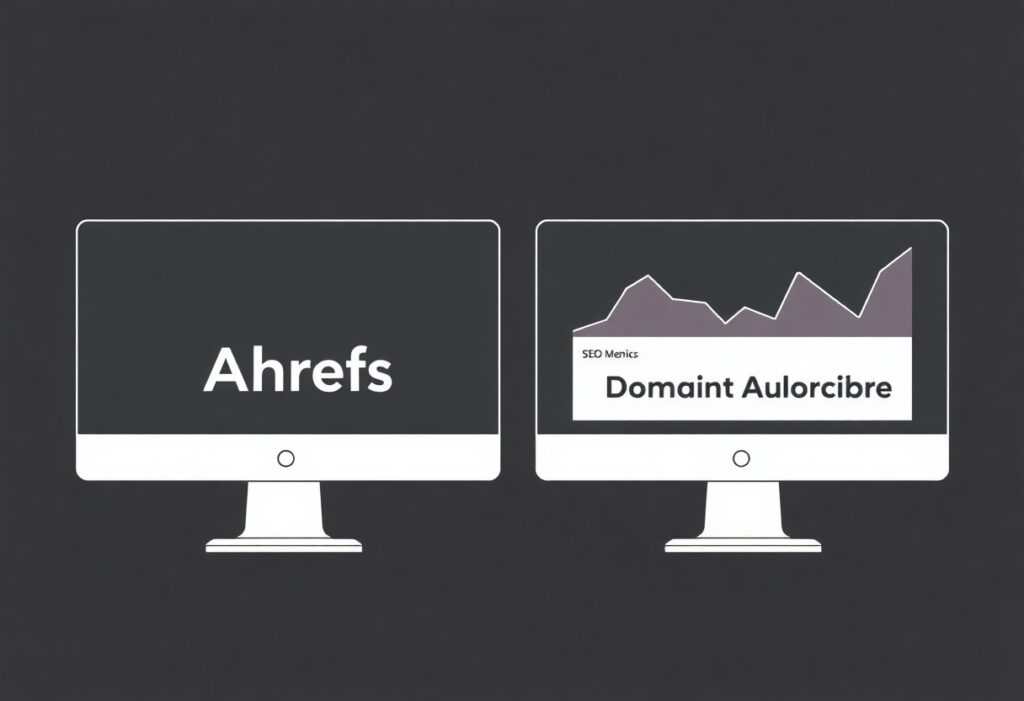There’s no denying that Keywords in Meta Descriptions play a huge role in improving your website’s click-through rate. When you craft a well-optimized meta description, you not only inform search engine users about your page but also entice them to click. However, you must strategically place keywords without overstuffing. Instead, focus on making descriptions compelling and natural. At Rank Authority, we leverage AI-driven strategies to help businesses create descriptions that boost rankings. By following proven techniques, you can enhance search visibility while keeping descriptions reader-friendly. So, let’s explore how to do it effectively while maintaining excellent SEO performance.
Understanding Meta Descriptions
Before you optimize your pages with Keywords in Meta Descriptions, you need to understand what meta descriptions are and why they matter. These short snippets summarize your webpage’s content and appear in search engine results. They provide potential visitors with a preview of what to expect before clicking. While they don’t directly impact rankings, they strongly influence click-through rates (CTR). Rank Authority utilizes AI-driven approaches to refine meta descriptions, ensuring they attract the right audience. By effectively incorporating keywords, your meta description can drive user engagement, enhancing your overall SEO strategy.
Definition and Purpose
Above all, a meta description is a short HTML attribute that summarizes a webpage’s content. Search engines display this snippet beneath the title tag in search results, offering users a quick insight into the page. The primary purpose of a meta description is to engage searchers and encourage them to click your link instead of a competitor’s. Well-crafted descriptions, optimized with Keywords in Meta Descriptions, significantly impact how users perceive your content. Rank Authority’s AI-powered optimization process ensures your descriptions are both compelling and structured for better conversions.
Importance for SEO and Click-Through Rates
An optimized meta description helps increase CTR by making your result more appealing than others on the page. Even though search algorithms do not use them as a ranking factor, they still influence user behavior. By strategically adding Keywords in Meta Descriptions, you align your content with user intent, improving engagement. High engagement signals can indirectly enhance your SEO efforts. Rank Authority emphasizes AI-enhanced tweaks to ensure each description achieves the best possible performance.
Also, when searchers see a page title and description that match their query, they are more likely to click. A well-written meta description is not just an SEO element; it directly impacts user engagement. You should keep it under 160 characters to avoid truncation. Integrating relevant Keywords in Meta Descriptions naturally makes them more effective. Rank Authority leverages AI to analyze trends and deliver descriptions that convert, helping businesses achieve higher search visibility and engagement.

The Role of Keywords in Meta Descriptions
You need to use Keywords in Meta Descriptions effectively to improve your website’s visibility. These keywords help search engines understand your content, while also attracting users to click on your link. A well-crafted meta description with strategic keywords can boost search rankings and drive traffic. However, you must maintain natural readability, ensuring that your description remains compelling to users. Rank Authority recommends integrating keywords seamlessly within your meta description to enhance both search visibility and engagement. By doing so, you can optimize your site for AI-driven search algorithms while keeping it user-friendly.
How Search Engines Interpret Keywords
Along with influencing user engagement, search engines scan Keywords in Meta Descriptions to determine relevance. These keywords signal how well your page answers a searcher’s query. However, stuffing too many keywords can make descriptions appear spammy, negatively affecting rankings. Instead, focus on incorporating them naturally while maintaining readability. Rank Authority uses AI-based techniques to analyze keyword placement, ensuring an optimal balance. When your descriptions align with search intent, search engines may highlight relevant keywords in bold, making your link more noticeable. This increases the chances of users clicking through to your website.
Impact on User Engagement
For higher engagement, your Keywords in Meta Descriptions must match user intent while being persuasive. When users see familiar keywords matching their search, they feel confident your page holds the right information. Including these keywords naturally within a compelling description boosts click-through rates, ultimately improving your overall search performance. Rank Authority recommends keeping descriptions under 160 characters while ensuring they remain enticing and relevant. A well-crafted meta description encourages users to engage, leading to lower bounce rates and better site performance.
Understanding how Keywords in Meta Descriptions influence engagement is vital for long-term success. When users find meta descriptions that address their needs, they are more likely to interact with your content. A well-optimized meta description not only improves search visibility but also strengthens brand credibility. Rank Authority leverages AI to analyze keyword effectiveness, ensuring businesses maximize their digital presence. Crafting compelling, keyword-rich meta descriptions can significantly enhance your ability to convert clicks into loyal visitors. A strategic approach allows you to connect with users and improve your website’s ranking potential.

Best Practices for Using Keywords
Assuming you want to maximize your site’s visibility, using Keywords in Meta Descriptions effectively is vital. At Rank Authority, we emphasize a strategic approach for optimizing these descriptions to improve search rankings and user engagement. First, each meta description should naturally incorporate your primary keyword while maintaining readability. Additionally, placing the keyword early can help search engines and users quickly grasp the content’s relevance. While keywords matter, focusing on compelling and concise phrasing ensures users click through to your site. Lastly, balancing keyword usage with a natural tone will support both SEO performance and user experience.
Placement and Density
Among the key factors in writing Keywords in Meta Descriptions, placement and density play a significant role. Ideally, you should position the primary keyword within the first 150 characters to ensure visibility in search results. Additionally, using the keyword once or twice maximizes engagement without overwhelming the text. At Rank Authority, we stress keeping the keyword density balanced—overuse can make descriptions feel forced and impact readability. Furthermore, including variations of the keyword naturally throughout the description can boost relevance without appearing spammy. Ultimately, the goal is to create an enticing and informative snippet that encourages clicks.
Avoiding Keyword Stuffing
Above all, avoiding keyword stuffing in Keywords in Meta Descriptions is vital for maintaining a natural tone and improving ranking potential. Search engines increasingly penalize excessive keyword usage, which can make descriptions seem unnatural. Overloading your meta description with the same phrase may signal spam to search engines, reducing your page’s credibility. Moreover, users find repetitive content off-putting, leading to lower click-through rates. Instead, writing engaging, meaningful descriptions that integrate keywords smoothly is key. Rank Authority recommends focusing on readability while ensuring your meta descriptions provide clear, relevant information in a well-structured manner.
Plus, stuffing your meta description with excessive keywords can do more harm than good. Search engines like Google prioritize user experience, and stuffing descriptions with redundant keywords might lead to lower rankings or even penalties. Instead, blend variations and synonyms into your content to enhance relevancy while maintaining natural readability. Additionally, your description should act as a compelling summary—if it’s repetitive or awkward, users may opt for a competitor’s site instead. At Rank Authority, we encourage an AI-powered approach to crafting effective descriptions, ensuring that Keywords in Meta Descriptions enhance, rather than sabotage, your search presence.
Writing Compelling Meta Descriptions
To create an effective meta description, you need to strategically place Keywords in Meta Descriptions while ensuring the text remains engaging. A compelling description should entice readers by addressing their needs, offering a solution, or sparking curiosity. Use action words, highlight benefits, and maintain a friendly yet authoritative tone. Ensuring readability is necessary, so avoid keyword stuffing. Instead, integrate your keywords naturally to maintain a smooth flow. By writing descriptions that both search engines and users find valuable, you can improve click-through rates. At Rank Authority, we utilize AI-driven strategies to help you craft high-performing meta descriptions.
Balancing Optimization and Readability
With proper optimization, Keywords in Meta Descriptions can improve both search rankings and user engagement. However, stuffing too many keywords can make your description unnatural, potentially discouraging clicks. Instead, focus on blending readability with SEO by writing in a conversational yet informative tone. Keep the text concise and to the point while ensuring core keywords appear naturally. Additionally, structuring the description to answer a user’s intent will make it more attractive. Rank Authority leverages AI to analyze keyword placement and readability, ensuring that your descriptions perform well in search results while remaining inviting to users.
Using Call-to-Actions Effectively
Below the main content, including a well-crafted call-to-action (CTA) in your Keywords in Meta Descriptions can significantly increase click-through rates. Phrases like “Learn more,” “Get started today,” or “Discover the benefits” encourage users to take action. Your CTA should align with your content while maintaining urgency without being overly promotional. Well-placed CTAs help users understand the next step, guiding them toward your website for more information. Rank Authority’s AI-powered SEO ensures your descriptions contain action-driven language, seamlessly blending keywords and motivation to boost site visits.
Understanding how to use a CTA in your Keywords in Meta Descriptions ensures that your meta descriptions drive real engagement. A well-structured CTA helps users know what to expect after clicking, reducing bounce rates. Additionally, a compelling CTA makes your website appear more inviting, increasing user trust. However, you should avoid generic phrases that don’t connect with your audience. Instead, personalize your CTAs based on intent. With Rank Authority’s AI-driven solutions, you can optimize descriptions effectively, ensuring they strike a balance between urgency and relevance, leading to increased conversions.
Common Mistakes to Avoid
Keep your Keywords in Meta Descriptions effective by steering clear of common mistakes that could hurt your SEO. Many business owners unknowingly make errors that prevent their pages from ranking well. A poorly optimized meta description can reduce click-through rates and visibility. To improve performance, balance keyword usage, write compelling copy, and match user intent. At Rank Authority, we help businesses enhance their rankings strategically. By avoiding these pitfalls, you ensure your pages perform better in search results, leading to higher engagement. Now, let’s examine some frequent missteps that could be holding your site back.
Duplicate Meta Descriptions
Common SEO errors include using identical meta descriptions across multiple pages. This confuses search engines and makes it harder to rank effectively. Additionally, duplicate Keywords in Meta Descriptions create a poor user experience by failing to differentiate content. Users searching for specific information may skip results that seem too similar. Instead, craft unique descriptions that highlight each page’s value while integrating keywords naturally. Fresh, engaging meta descriptions signal relevance to search engines, improving rankings. Rank Authority’s AI-driven SEO tools help avoid duplication by generating optimized, distinct descriptions tailored for better search performance.
Ignoring Search Intent
An overlooked mistake is failing to align Keywords in Meta Descriptions with search intent. When users search for a query, they expect results that answer their needs. If your description doesn’t match user expectations, potential visitors might skip your site. Search engines prioritize relevant results, so ignoring intent can negatively impact rankings. Ensure that each meta description directly addresses what users seek. At Rank Authority, we refine descriptions to match search behavior, increasing click-through rates.
Consequently, ignoring search intent leads to lower visibility and reduced engagement. Search engines evaluate behavior signals, like bounce rates and dwell time, to rank content. A misleading meta description may attract clicks but fail to retain visitors, which damages SEO performance. Instead, focus on writing descriptions that quickly convey value and relevance. Use AI-driven insights, like those provided by Rank Authority, to capture genuine search intent. By doing so, you encourage users to stay on your page, ultimately improving rankings and conversions.

Tools for Optimizing Meta Descriptions
Despite your best efforts, crafting the perfect meta description can be challenging. However, leveraging the right tools can make optimization easier. Using AI-powered platforms, like those from Rank Authority, allows you to enhance your keywords in meta descriptions by analyzing competitors and refining search intent. Furthermore, optimization tools help improve readability and length, ensuring your descriptions meet search engine guidelines. To streamline your workflow, using the proper keyword research and analysis tools will maximize visibility. Not only will this save you time, but it will also increase click-through rates while improving overall SEO performance.
Keyword Research Tools
Before optimizing keywords in meta descriptions, selecting the right keywords is necessary. Keyword research tools help identify high-ranking, relevant terms that align with user intent. Tools such as Google Keyword Planner, Ahrefs, and SEMrush let you analyze search volume and competition while discovering related phrases. Additionally, AI-powered platforms from Rank Authority provide deeper insights into trending keywords and semantic variations, ensuring your descriptions match real search queries. Without proper research, meta descriptions may not attract the right audience, affecting your organic traffic. That’s why integrating premium keyword research tools into your process makes a significant difference.
Meta Description Analyzers
Along with keyword research, using meta description analyzers ensures descriptions are properly optimized. These tools evaluate the effectiveness of keywords in meta descriptions by measuring readability, structure, and relevance. Additionally, they highlight areas requiring improvement, such as length, missing keywords, or lack of engagement. Using AI-based analyzers, like those from Rank Authority, you can refine descriptions in real time while enhancing content strategy. Analyzers also predict how meta descriptions appear in search results, helping you avoid truncation. By integrating these tools, you improve both search engine visibility and user engagement simultaneously.
Further improving your descriptions, meta description analyzers assess word placement and emotional impact. Effective tools indicate whether keywords in meta descriptions appear naturally or feel forced. They also suggest alternative phrasing for better readability while preventing keyword stuffing. Some advanced analyzers even score descriptions based on SEO best practices, recommending ways to increase user interest. More importantly, they offer suggestions to align content with search intent, making your snippets more relevant. Rank Authority’s AI-driven solutions take this further by providing competitor analysis, ensuring your descriptions outperform others in search rankings. By leveraging these tools, your meta descriptions become more impactful.
Final Words
As a reminder, using Keywords in Meta Descriptions strategically helps improve your website’s visibility on search engines. You need to craft unique, engaging descriptions that naturally incorporate these keywords while maintaining readability. Additionally, by balancing relevant keywords with compelling language, you enhance both search rankings and user engagement. Since search engines highlight relevant terms, optimizing your descriptions ensures better click-through rates. Furthermore, working with an expert like Rank Authority allows you to leverage AI-driven SEO strategies for even greater success. By refining Keywords in Meta Descriptions consistently, you enhance your content’s reach, making your website more competitive online.

Sign Up for Free!
One-Click Fully Automated SEO.
Boost Rankings, and Increase Traffic.
Instantly Optimize Your Site.
- No Coding
- No Credit Card Required
- One Click Setup













